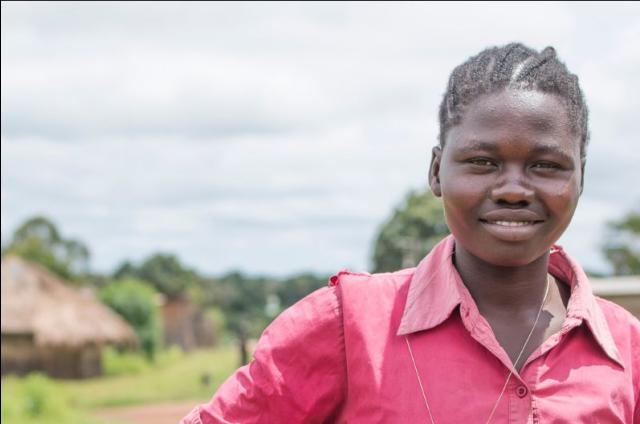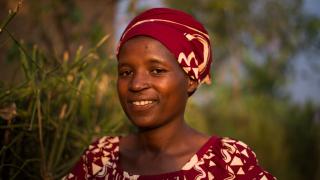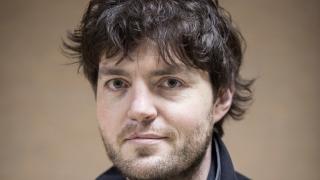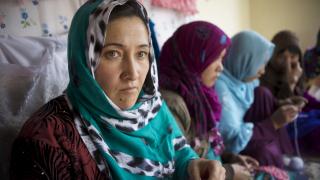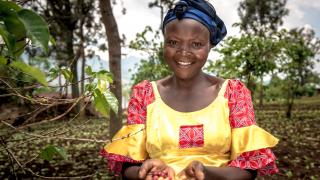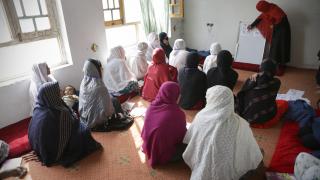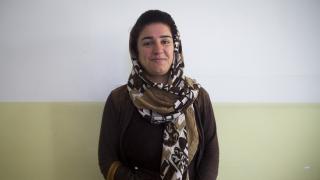From Conflict to Collaboration: A Couple's Transformation
From Conflict to Collaboration: A Couple's Transformation
The journey of two graduates of our programme, Mawa and Jackline, finding peace through our programme
Mawa and Jackline have been married for six years. They live in Wuluturu, Yei River County, South Sudan, with their two children. Their marriage was on the brink of collapse when they were enrolled in our Couples Connect Pilot Programme.
Today, Mawa shares that they now live together in harmony. Here is his story.
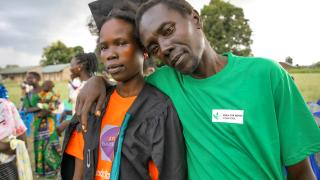
In my culture, being a man means being the head of the family. This title comes with responsibilities but also a lot of privileges.
As the head of my household, I was raised to be the sole provider and decision-maker. Everything I said or did was final. My wife wasn’t supposed to seek financial independence or earn a living; she was meant to stay home and take care of the family.
This belief shaped my expectations when I got married.
To my surprise and frustration, my wife was not the obedient woman I expected. She had a mind of her own and wanted to contribute financially. She would buy things for our home without my input, prepare meals with money I hadn’t given her, and even engage in small businesses and casual labour to make her own money. This independence didn't sit well with me. I was suspicious - where did she get the money? Why was she always away from home? Was she trying to compete with me or, worse, undermine my authority?
My suspicions turned to anger. I verbally insulted her and sometimes became violent. I threw away food she prepared with her own money and restricted her movements.
Our home became a battleground, and we became enemies living under the same roof.
One morning, my wife suggested we join the Couples Connect Programme with Women for Women International.
Initially, I was hesitant. But she mentioned that we might receive financial support if we attended together. Reluctantly, I agreed, motivated only by the prospect of money.
As we participated in the programme, something remarkable happened. We learned about teamwork, sharing responsibilities, effective communication, problem-solving and financial management.
Slowly, I began to understand and appreciate my wife’s efforts.
We started talking again, discussing business, farming and our children. I began supporting her business and we started working together. By the end of the programme, we received some capital, which we invested in her business.
Today, our lives are transformed. I can relax a little, knowing that I don’t have to shoulder every burden alone.
We are a team.
Recently, I developed an illness that affects my ability to walk or stand, making it difficult for me to work. My wife has become the primary breadwinner, contributing up to 70% of our family’s income. I now support her as best I can.
I am grateful to Women for Women International for this life-changing programme and for giving me another chance at love.
I am also grateful to my wife for being strong and persistent.
Without her, I don’t know how I would manage in my current condition.
To all women, I encourage you to support your husbands and not give up on your families. And to the men, I hope you learn from my experience: support your wives, and if you can’t support them, at least don’t stand in their way.
keep reading
Comfort Zones Anthology
subtitle:
On the eve of the publication of Comfort Zones anthology which encourages 28 female writers to dig deep and write something brave and new, Kate Hamilton and Emily Ames, founders of Sonder & Tell have pulled together some of their favourite story collections – to read, and then to pass on.
The fashion event of the year is here! Yes, that’s right the #SheInspiresMe Car Boot Sale is back with a bang on the 11th May. Read to see some of the fabulous pieces our staff members picked up at the 2018 Car Boot Sale.
In 2019, a quarter of a century on from the genocide, we celebrate the rise of Rwanda from the ashes of conflict, and the elevation of women's voices. The challenge of creating a lasting peace depended greatly on the actions of women, who were the majority of survivors.
International Women’s Day on 8th March is a fantastic opportunity to show your support for the global sisterhood. Here are eight ways you can get involved and support women survivors of war this year.
Carron Mann, Head of Policy and Advocacy, highlights our engagement with the UN’s 63rd Session of the Commission on the Status of Women, a key space for us to share our evidence and amplify the voices of the women we serve with key influencers.
"Words like ‘empowerment,’ ‘equality,’ ‘feminism,’ can sound so big that sometimes it’s hard to gauge the first step in joining such a dynamic and quickly growing global movement." Women for Women International Ambassador, Tom Burke, provides his 5 tips for men on how to be better allies to women.
Every year from the 25th November to the 10th December, the UN runs #16DaysofActivism Against Gender-Based Violence - an initiative aimed at promoting action against violence towards women and girls. To mark the campaign, our Associate Director of Social Empowerment, Saba Ghori, explains how we are working to prevent gendered violence against women survivors of war.
Support Us On #GivingTuesday
subtitle:
Tuesday 27th November marks #GivingTuesday, the world's biggest day of giving.
From shopping with purpose to having your donations doubled at no extra cost, find out how you can make a real difference to women survivors of war's lives.
"Building a personal connection with my sponsor sister, Amela, became a source of strength for me." Our Executive Director, Brita Fernandez Schmidt shares the story of meeting her first sponsor sister and the very real impact of our programme.
Our Executive Director, Brita Fernandez Schmidt, reflects on the awarding of the 2018 Nobel Peace Prize to Nadia Murad and Denis Mukwege for their work towards eliminating sexual violence in conflict. How can we make this award meaningful for the millions of women who are the target of horrific violence around the world?
Using skills learned in our “Change Agents Programme,” our graduates worked together with Women for Women International – Afghanistan and the Afghan Women’s Network to create an opportunity to advocate for women's rights and opportunities in rural Afghanistan.
Kabira's Story
subtitle:
Kabira fled from Syria to Iraq where she joined a programme funded by Women for Women International. Read about her experiences overcoming isolation and trauma as she rebuilds her life.

